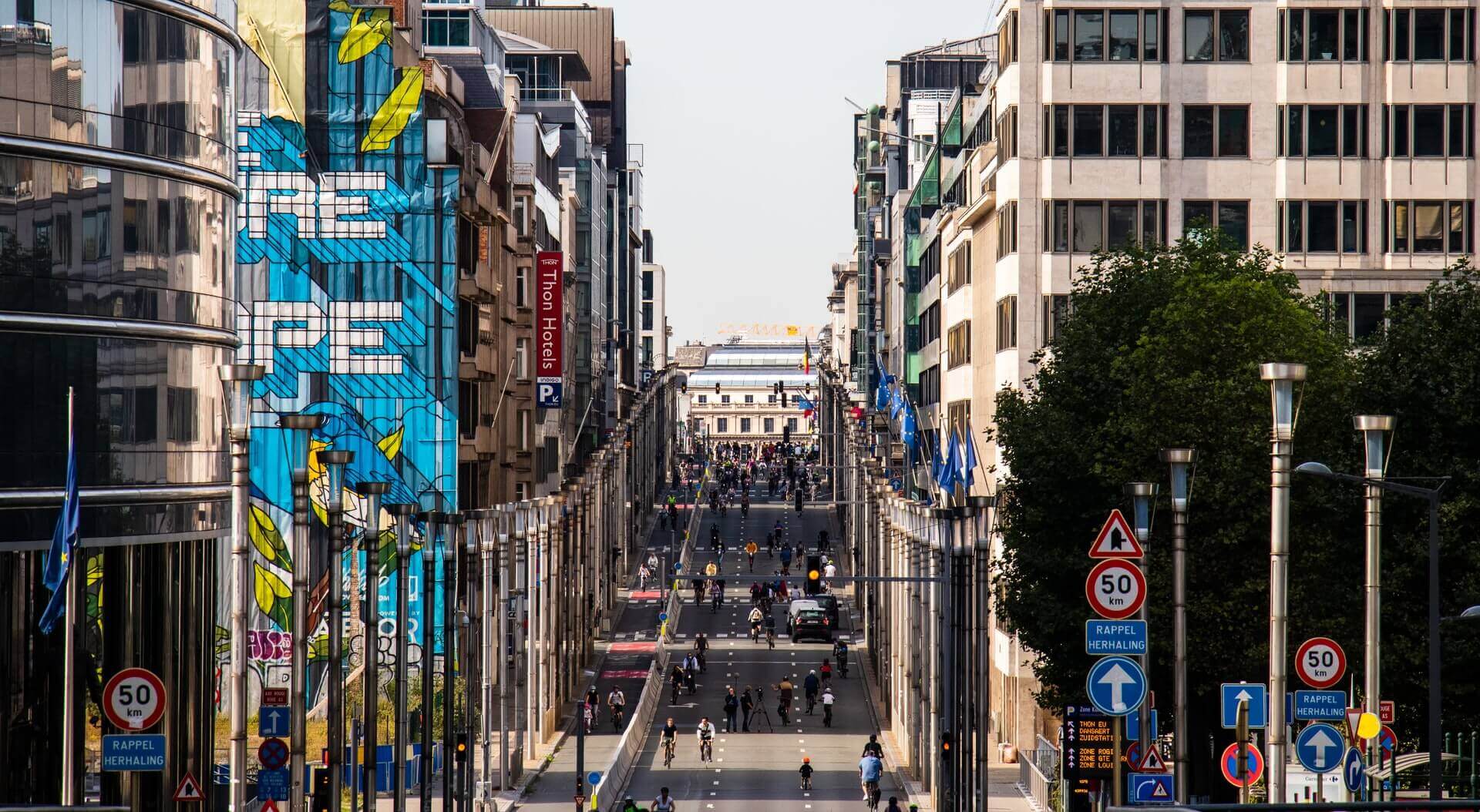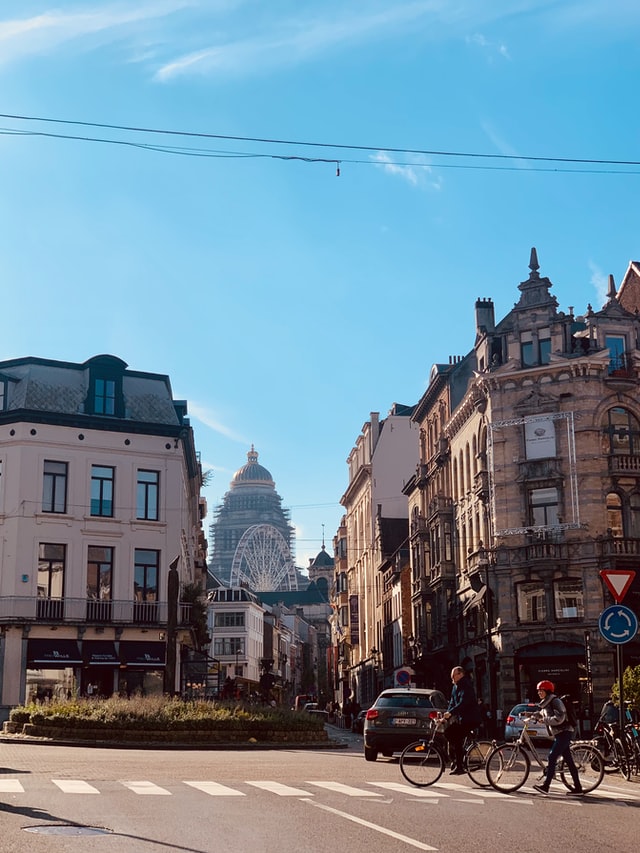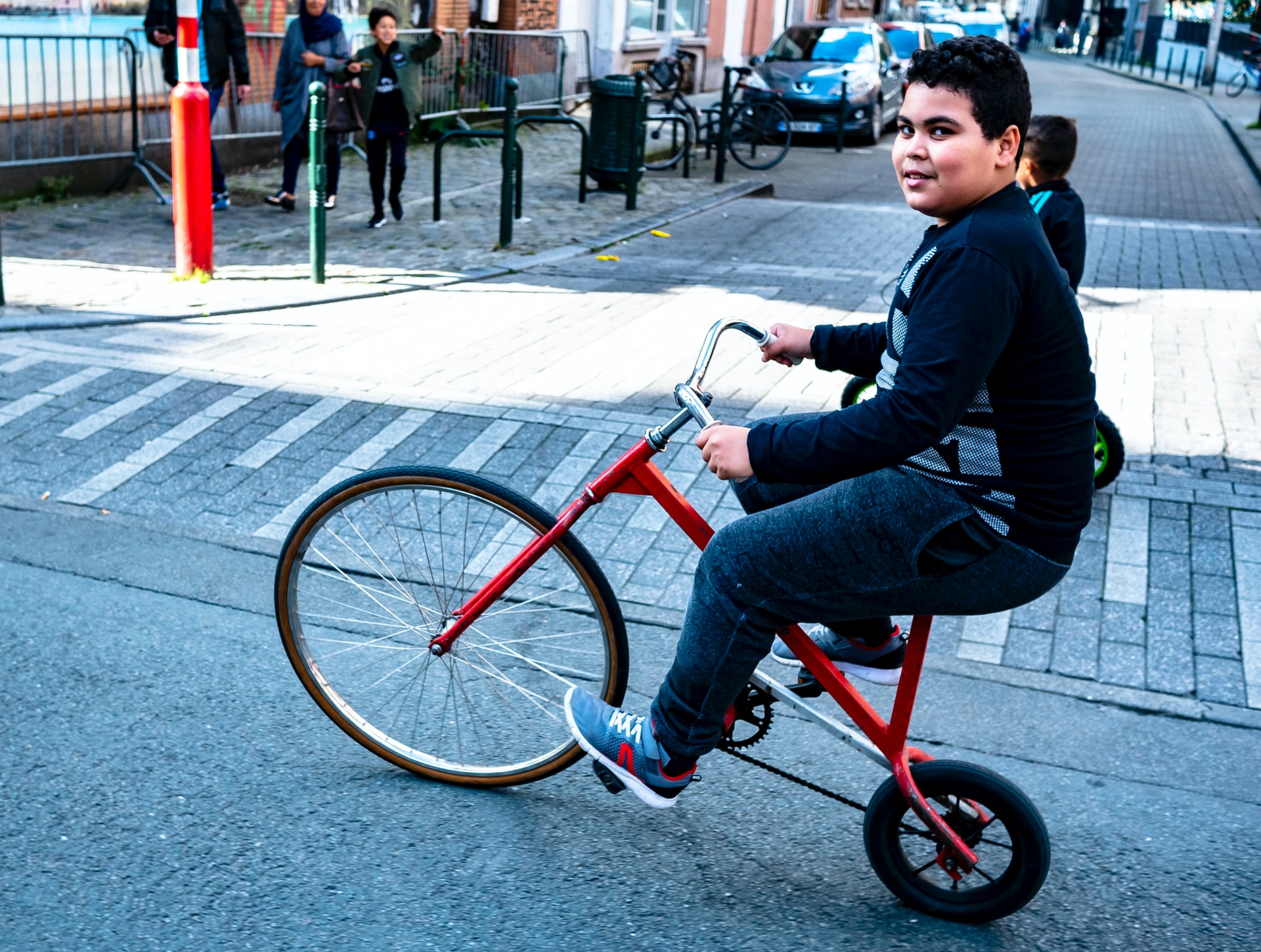
- Inspiring People -
- 4mins -
- 336 views
Brussels quadruples budget to pay citizens to ditch their cars
Through the Brussels’Air Premium, city residents who cancel their car licence plates can apply for credit ranging from €500 to €900 to be spent on greener mobility alternatives of their choice, from rail passes to bike purchases and even taxi trips.
Four times more budget for premium to get rid of car in Brussels
The Brussel’Air premium is intended to encourage Brussels residents to replace the car with a more sustainable form of mobility. The available budget is to be quadrupled to €3 million ($3.3m). Environment Minister Alain Maron announced on Monday 7 March that the Brussels government had approved the revision.

Brussel’Air premium is €500, €700 or €900 euros
The Brussel’Air premium is €500, €700 or €900 euros, depending on the beneficiary’s income and status.
Since Monday 7 March, residents of Brussels who have their number plate deleted can apply for the Brussel’Air premium via the website Irisbox. This is also the place where citizens can choose which mobility services they want to use the premium for. The premium is only awarded to people if the car was registered in their name for at least two years.
The scope for which the Brussel’Air premium can be used is also being expanded considerably. In the past, the choice was limited to public transport or a bicycle budget, supplemented with car sharing.
From now on, the grant applicant has several options:
- a bicycle budget from Pro Velo to buy equipment for two-wheelers,
- a subscription to the shared bicycles of Villo,
- a budget for taxis from Victor Cab,
- subscriptions to public transport and TaxiBus checks from the STIB,
- a subscription and a budget for the Cambio car-sharing system,
- a budget for the Poppy car-sharing system,
- a Mobility as a Service (MaaS) service from Modalizy.
By putting money on a Modalizy Flex card, the recipient of the bounty can buy all kinds of mobility services according to need (all types of public transport, scooters, taxis, scooters, car rental…)
The offer can be extended, while the beneficiary can also be a family member of the applicant.
Source: Bruzz.be

The 3 million budget is 4 times bigger
The government is also allocating a larger budget for the Brussel’Air premium. It will be increased from €750,000 to more than €3 million, partly financed with money from the European recovery plan. Three times as many people will now be able to benefit from the scheme.
It took a while before the new, income-related Brussel’Air premium was available. Since 1 January about 25,000 Brussels residents can no longer use their diesel car in the region due to the stricter LEZ (Low Emission Zone). The renewed premium was intended for them, among other things.
Brussels Environment still had to adapt the application procedure to the GDPR privacy rules, now that sensitive data such as family income must also be processed.
Source: Bruzz.be

Tackling the city’s pollution problem
“This reform of the Bruxell’AIR bonus is an important tool to encourage a transport shift in Brussels,” Alain Maron, Brussels Minister for Climate Transition and the Environment, told The Brussels Times.
“By quadrupling its budget and ensuring that it pays special attention to disadvantaged households and people with reduced mobility, we want to enable all the city’s inhabitants to gradually make the transition to more sustainable mobility.”
The benefits are various but one of the biggest goals is to “improve the quality of the air we breathe while calming our city and fighting congestion,” Maron says.
Recent studies have shown that air quality in Brussels remains poor in many places, including its parks and other green spaces, largely due to pollution from cars in one of Europe’s most congested cities.
The Brussels’Air premium hopes to convince people to hang up their car keys and instead make use of alternative means of transport.
Source: BrusselsTimes


